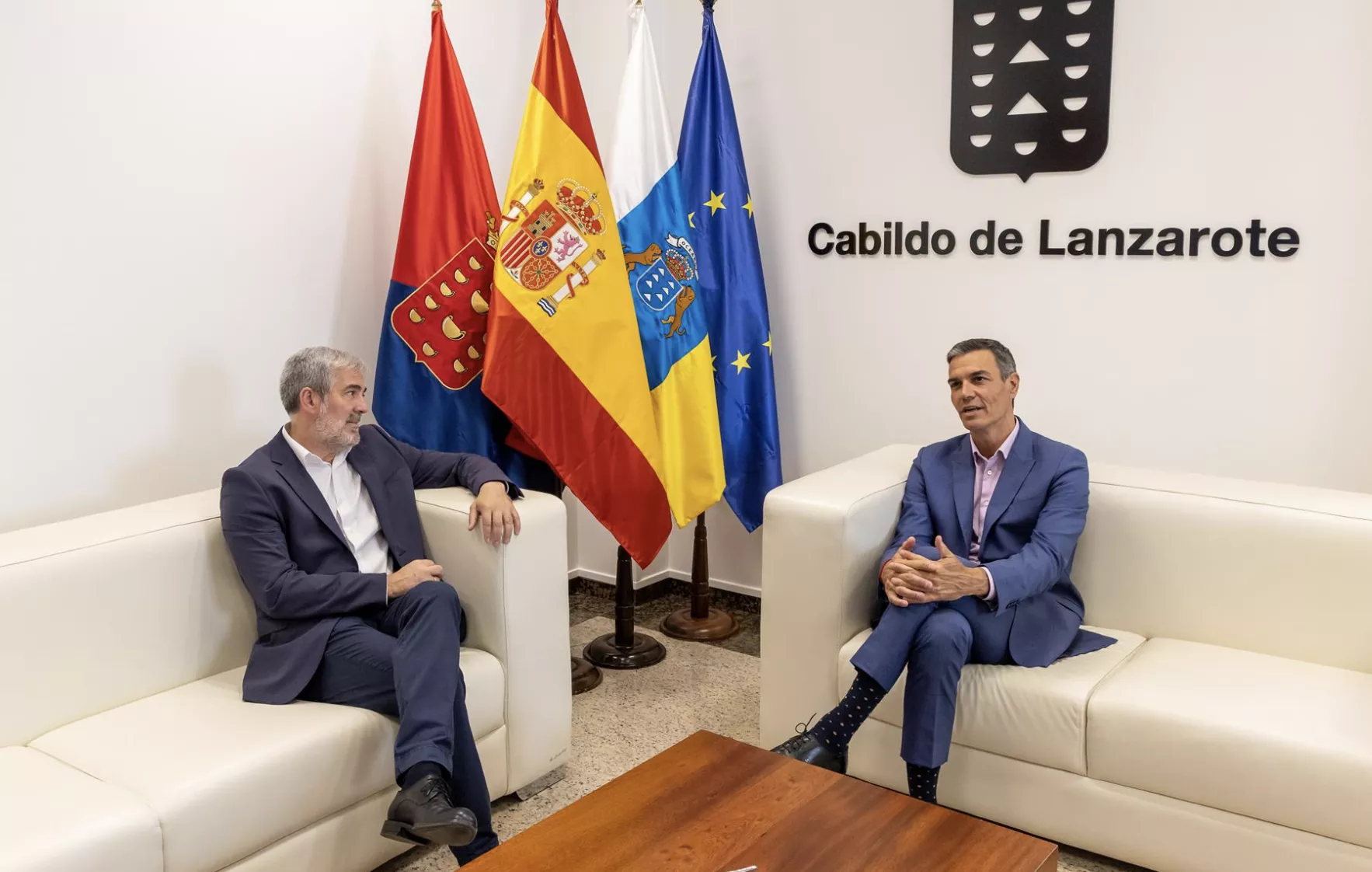
The meeting between the two leaders took place this afternoon in Lanzarote, and President Sánchez found the proposal “interesting.”
The President of the Canary Islands, Fernando Clavijo, has proposed to the Spanish Prime Minister, Pedro Sánchez, a ‘Canarian law decree’ that includes “all outstanding matters” from the Canarian Agenda. In response, the national leader did not commit but stated that he found it “interesting” and would “study it.”
This was expressed on Monday by the Canarian leader during a press conference after meeting with Sánchez in Lanzarote, which was attended by the Minister of Territorial Policy and Democratic Memory, Ángel Víctor Torres.
Clavijo explained that there are matters from the Canarian Agenda that, for various reasons, such as difficulties obtaining a majority in Congress, have been delayed over time.
For this reason, he emphasised that the Autonomous Community (CCAA) is committed to drafting a proposal to include issues that are crucial for the islands, as the year progresses, now in mid-August, “and we see that they are not materialising.”
“When we look to the horizon and see that political activity resumes in Congress in September –observed the regional president–, the truth is that the current behaviour of the mainland parties genuinely raises doubts that some vital issues for the Canary Islands can move forward.”
In this regard, Clavijo commented that among the matters that should be included in this decree are the guarantee of a 60% tax deduction for the citizens of La Palma and its reconstruction. However, while waiting for the agreed funds to arrive, we should be able to use the surpluses from local corporations for reconstruction on the island, as well as to cover the costs of accompanying minors.
He also highlighted the importance of including the advance of the debt owed to the Canary Islands in the context of the additional POSEI, a line of assistance funded by the Spanish Government as a complement to the EU compensation measures to promote the primary sector in the Outermost Regions (RUP). Currently, €24.93 million is owed for the financial years 2023, 2024, and 2025.
“It is very important,” he said, “to care for the primary sector, our agricultural environment, because the depopulation of rural areas causes the wildfires we suffer from, which are particularly virulent at this time on the Peninsula.” He sent a message of solidarity and affection to those affected.
Meanwhile, the Canarian President insisted that this decree must include the reinforcement of the electrical system in the Canary Islands, “whose infrastructure is outdated, and there is always the risk of power cuts like those experienced in Tenerife and La Gomera, and more recently in La Palma. We must also consider the installation of portable infrastructure in Lanzarote or Fuerteventura,” islands where hydraulic works are urgently needed to tackle the water emergency.
Clavijo stressed that these are vital issues for the islands and for Canarians, as are the updating of transport costs, the extension of the road agreement, and adequate funding to complement non-contributory benefits in the Canary Islands, of which the majority of recipients are women.
REQUEST FOR STATE INVOLVEMENT IN THE DEFENCE OF THE RUP
Another of the demands Clavijo made to Pedro Sánchez was the need for the State to engage in the strategy, driven by the regional government, with Portugal and France to defend, in the European context, the status of the Outermost Regions and ensure their specific funds are not reduced in the upcoming EU budget.
“In this matter, the President agreed with the Canarian position that funds should not be transferred to the member states because if the way to fit the Canary Islands into the European Union disappears, our advantages for advancing on equal terms with the rest of the territories would also vanish,” he noted.
Finally, during the meeting, there was also an opportunity to assess the pending payments related to Employment and Poverty Plans currently being processed. “In the end, we need to push for these in the last quarter, which complicates management, so we have agreed to resume meetings to make them effective, as they are included in the extended budgets.”












